It's Mother's Day in Portugal and Mother's Day next Sunday in the US. Since we're celebrating 1981 this week, we're starting early with the biggest, meanest mother of them all!
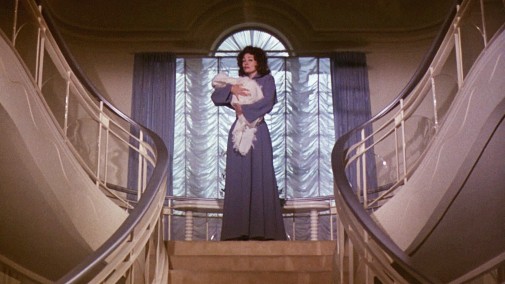
In 1971, in her book titled My Way of Life, Joan Crawford, the legendary diva of Old Hollywood, said that, of all the actresses of the time, only Faye Dunaway had the talent, the class and the courage to be a movie star. Had she lived to see the younger actress play her in the infamous Mommie Dearest, Crawford would have probably revised her statement. The 1981 biopic is one of the great camp classics of all time, a prestige picture with pretensions of Oscar glory that crashed and burned most spectacularly. Dunaway herself is said to have believed she was on her way to Academy Award glory. Instead, she got a Razzie for Worst Actress...
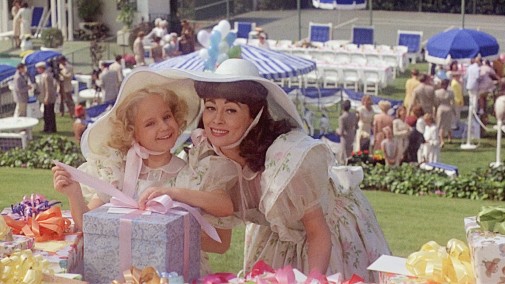
The picture's also the big-screen adaptation of a contentious tell-all in which Christina Crawford, Joan's adopted daughter, paints a picture of hellish child abuse that went on for decades. It's such a shocking testimony that its scandal has forever blemished Joan Crawford's legacy, changing how she was perceived in popular culture forevermore. Nowadays, people are more likely to know the gorgon of Mommie Dearest than the Oscar-winning star of Mildred Pierce. That said, we're not here to lambast this admittedly troublesome flick, the veracity of the book's allegations or Dunaway's behind the scenes antics. You're invited to reexamine the performance that won that unwanted Golden Razzberry and, perchance, find value in its grotesquerie.
That said, before dissecting the strengths of Faye Dunaway's maniacal take on Joan Crawford, we should understand some important things about the film she's in. Despite being based on the eponymous book, the movie Mommie Dearest tries hard to be a prestige biopic in the most conventional of forms. The big problem, you see, is that it doesn't attempt to be a biography of Christina, but that of her mother. This makes for an incredibly disjointed experience, as the horrors of a traumatized child's memories must live in coexistence with campy interludes backstage glamour. In other words, the movie doesn't know what it wants to be and nobody involved seems to have a strong point of view to interpret the material. Well, there's one person.
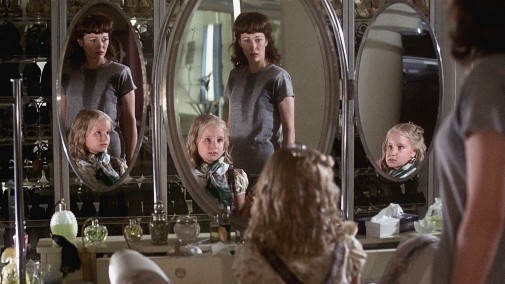
Faye Dunaway has a solid perspective on her character and she brings it to every scene she's in, often rubbing abrasively against the picture's glitzier passages. Even if not consciously, the actress plays Joan, not as a documentation of historical fact, but as the monster she might have been perceived as through the eyes of a terrified child. It's a horror movie performance played to the hilt with a fervor that is more frightening than it is fun. While I've always understood why this infamous star turn became a beacon of drag and high camp, whenever I watch it I never laugh. Take the wire hanger freak-out, an iconic moment of the bad movie canon, as an example. Its exaggerations may be laughable in retrospect, though, in the moment, they terrorize more than they amuse such is the possessed commitment of Dunaway giving herself to primordial rage.
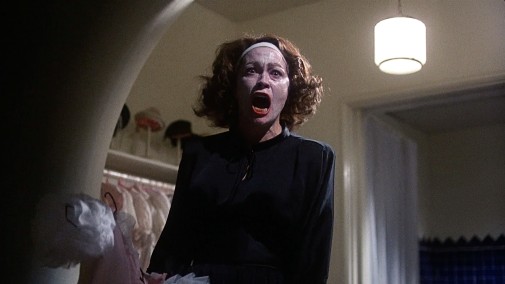
Whenever her Joan goes off the deep end, Dunaway snarls at the camera and sculpts her face into a gargoyle-like mask, her muscles rigid and throat looking like a tight rope that's about to explode from the tension. When this happens, the film comes to life in an electrifying manner, its tone bending around the main performance. For some disperse minutes, this disaster of a melodrama becomes a dangerous Expressionistic portrait of abusive parenthood, a Grand Guignol spectacle that also vibrates with the extremes of ravaged humanity. When Dunaway's Joan catches her reflection in the mirror during these tantrums, when her ears suddenly register her children's crying, it's as if she too is frightened of herself. This usually causes a de-escalation of aggression, her rants going from accusatory to self-pitying, her body deflating and her mouth abandoning the snarl for a frown full of sorrow.
All these choices are very big, astronomically distant from any imaginable permutation of subtle naturalism, but the visceral emotions they invoke are no less galvanizing because of that. Moreover, even if hers is a performance of extremes, Dunaway still finds gradations to play with, especially in the second half of the picture. When rewatching the movie for the writing of this piece, I was particularly impressed by the way she plays relatively warm chemistry with Crawford's fourth husband Alfred Steel, and how her scenes with an adult Christina burn with tentative affection. This character may be a psychotic actress who lives the hollow illusion of perfection, but she's also a haunted woman who longs for the fulfillment she so desperately acts for the cameras.
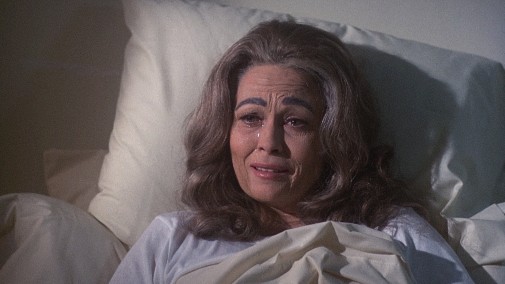
Returning to the idea of Faye Dunaway's Mommie Dearest as a horror movie, those notes of dissonant sentimentality are needed to round up this most perfect of domestic monsters. Because we get glimpses of her pain and her brittle pursuit of happiness, the violence, physical and psychological, that Joan inflicts on her children becomes that more horrifying. We get a sense that she wants to be the perfect mother, but simply can't help herself. Some of the best villains in horror cinema are the tragic ones, those who are complex. Faye Dunaway's Joan Crawford is no exception. She's bigger than life, more real than real, an actress lost within the madness of her performance.
1981's Mommie Dearest may be a trashed piece worthy of mockery, but Faye Dunaway's Joan Crawford is closer to a masterpiece of method acting twisted into the stuff of nightmares. In this Mother's Day, I invite you all to applaud her definite take on monstrous motherhood on the big screen.